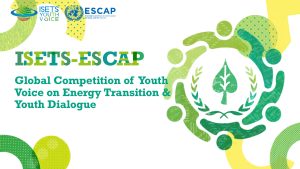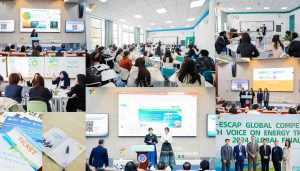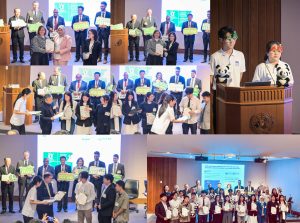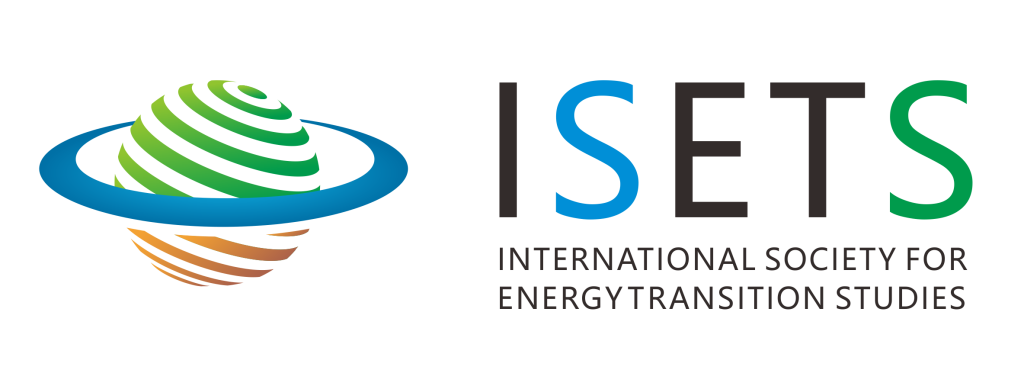The 2nd ISETS-ESCAP Youth Voice Competition on Energy Transition to Launch in February

The 2nd ISETS-ESCAP Global Competition of Youth Voice on Energy Transition (Youth Voice Competition) is set to officially launch in late February 2025. This global event aims to inspire young minds to actively participate in the energy transition movement. Interested participants are encouraged to stay informed by joining ISETS (www.isets.org) or following the ISETS LinkedIn account. Updated information will be made through the competition’s official website: https://isets.org/youth-competition-2025/.
Organized by the International Society for Energy Transition Studies (ISETS) in collaboration with the United Nations Economic and Social Commission for Asia and the Pacific (ESCAP), the annual Youth Voice on Energy Transition Program serves as a global platform for youth engagement. The initiative consists of two key components: the Youth Voice Competition and the Youth Dialogue.
The Youth Voice Competition invites young people from around the world to present innovative ideas, technologies, products, projects, or solutions to drive energy transition. The winners will gain an exclusive opportunity to participate in the Youth Dialogue, held at ESCAP headquarters alongside international energy-related meetings and events.
Highlights from the Inaugural Competition
The inaugural Youth Voice Competition saw remarkable participation, with around 300 individuals representing 77 teams from 37 countries. After rigorous regional rounds, seven outstanding teams secured sponsorships to attend the Global Finals in Chengdu, China, hosted by the Southwestern University of Finance and Economics (SWUFE) from November 28–30, 2024.



These finalists also participated in the Youth Dialogue during the 13th Forum on Energy for Sustainable Development at the United Nations ESCAP headquarters in Bangkok from December 2–4, 2024. Highlights from the 2024 Global Final and Youth Dialogue are available to watch here:
2024 Global Final Highlights: https://youtu.be/zE48uzLvoUg
2024 Youth Dialogue Highlights: https://youtu.be/50rsHHH8vYw
Call for Partners
Organizations are invited to partner with this program to gain visibility among some of the largest and most influential players in the international energy transition space. Interested organizations are welcome submit their Express of Interests to isets@isets.org by March 31, 2025.
Let’s unite to empower youth and accelerate the global transition to sustainable energy!
Important Dates:
- 31 March 2025: Deadline for the submission of Express of Interests (for Partner application).
- 1 April 2025: Registration opens for the 2nd ISETS-ESCAP Youth Voice Competition.
- 30 April 2025: Deadline for the proposal submission.
- 31 May 2025: Announcement of the divisional shortlists and information for video submission.
- 15 June 2025: Deadline for video submissions.
- 15 July 2025: Announcement of the divisional winners and information for global final competition.
- 3-5 September 2025: Participation in the ISETS-ESCAP Youth Dialogue, which will be held during the Asia Pacific Energy Week in Bangkok, Thailand.
About ISETS:
The International Society for Energy Transition Studies (ISETS) is an independent, non-profit organization, dedicated to knowledge sharing and advancing the global dialogue on energy transition and sustainability. It is being operated by a group of volunteers. Registration (at www.isets.org) as Associate Member is free permanently. Currently, ISETS has more than 1,600 members from 80 countries and regions.
About ESCAP:
The United Nations Economic and Social Commission for Asia and the Pacific (ESCAP), established by the Economic and Social Council of the United Nations and having its headquarters at Bangkok, Thailand, is responsible for promoting inclusive, resilient and sustainable development in the region through generating action-oriented knowledge, and by providing technical assistance and capacity-building services in support of national development objectives, regional agreements and the implementation of the 2030 Agenda for Sustainable Development.

